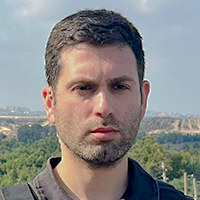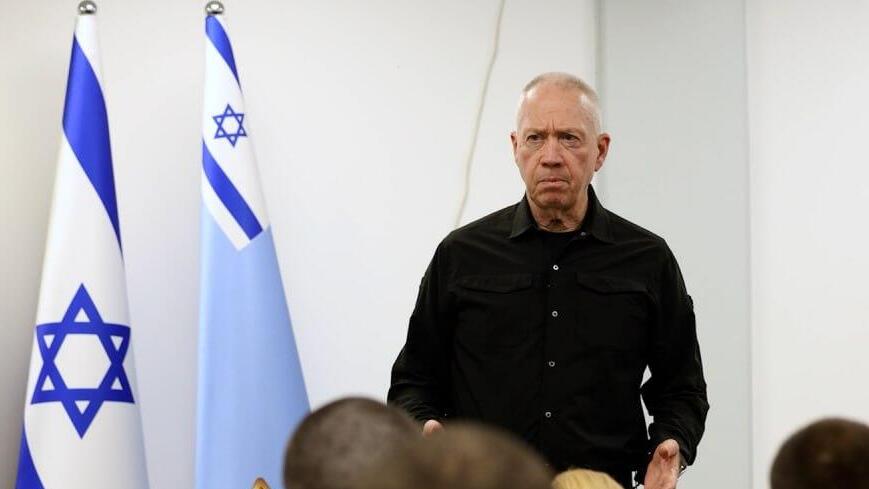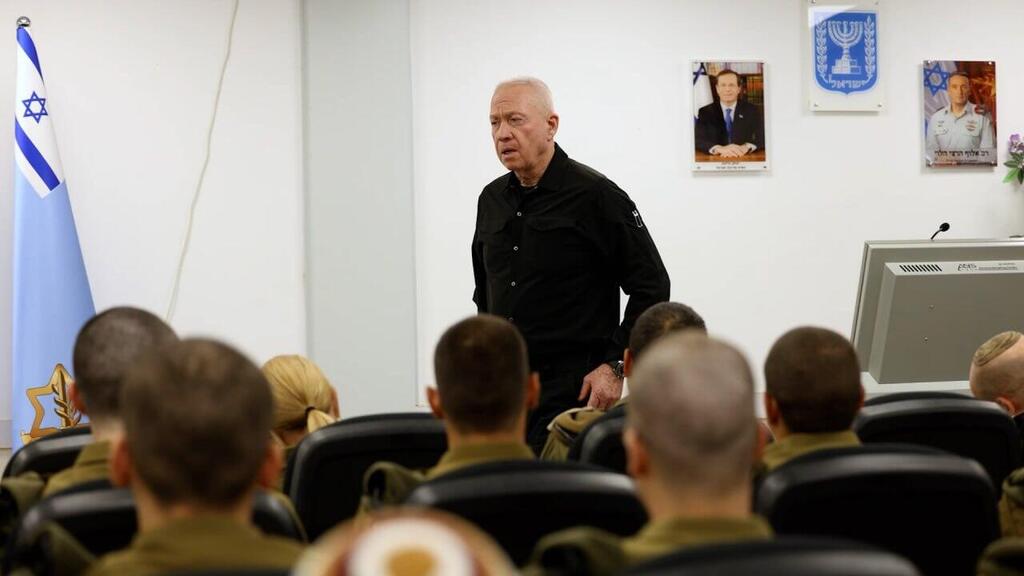Getting your Trinity Audio player ready...
"Our enemies in Iran and Hezbollah are threatening us in ways they haven't before, but those who try will face an unprecedented response, unlike anything they've experienced before," Defense Minister Yoav Gallant said Sunday.
Meeting with new recruits for the Nahal and Kfir brigades at the Tel Hashomer base, Gallant underscored Israel's significant capabilities, expressing hope that these adversaries would reconsider their actions to avoid sparking a broader war.
During a tour of the IDF induction process at the base, Gallant said: "The basic reality that must be understood is that the State of Israel is fighting for its existence in a hostile environment." He added: "There were years when this required explanation, but now everyone understands. We are in a war that has lasted for 10 months across seven different fronts. The key to security is people."
Gallant told the recruits that "you are joining during a challenging time, a very significant period. This is true for the entire war, especially in these days when our enemies threaten us in ways they haven’t before. We hear these threats from Iran and Hezbollah. They need to know that if they harm us in unprecedented ways, they can expect an unprecedented response from us. The IDF has significant capabilities."
He emphasized that Israel does not seek escalation. "I hope they make the right calculations and do not push us to take actions that could lead to significant harm and increase the likelihood of war on additional fronts. These are scenarios we do not desire, but we must prepare for them as they may occur," Gallant said.
"You, like us, have the right to defend ourselves with our own forces. I hope the IDF's actions will achieve our goals and bring about calm, but nothing is certain," Gallant also said. "We must prepare as if we are heading toward a more complex reality, which is not our desire, but we must be ready for it."
During his visit, the minister received a briefing on recruitment statistics from the head of the IDF's Personnel Directorate, Major General Yaniv Asor, Brigadier General Shay Taib, Colonel Yifat Yeger, and other personnel officials.
Meanwhile, German Chancellor Olaf Scholz spoke with Prime Minister Benjamin Netanyahu on Sunday, telling him that "now is the time to sign a cease-fire agreement and secure the release of hostages," according to a German government spokesperson. Scholz also told Netanyahu that "the cycle of destruction and violence in the Middle East must stop."
Scholz condemned the threats from Iran, Hezbollah and others against Israel’s security and its citizens, expressing concern over the risk of regional escalation. "Now more than ever, it is crucial to break the destructive cycle of violence, reduce tensions and act constructively to de-escalate," Scholz said. "Many military objectives in the fight against Hamas have been achieved, but the civilian casualties and human suffering in Gaza are immense. Ending the war in Gaza would be a decisive step toward reducing the risk of regional escalation."




